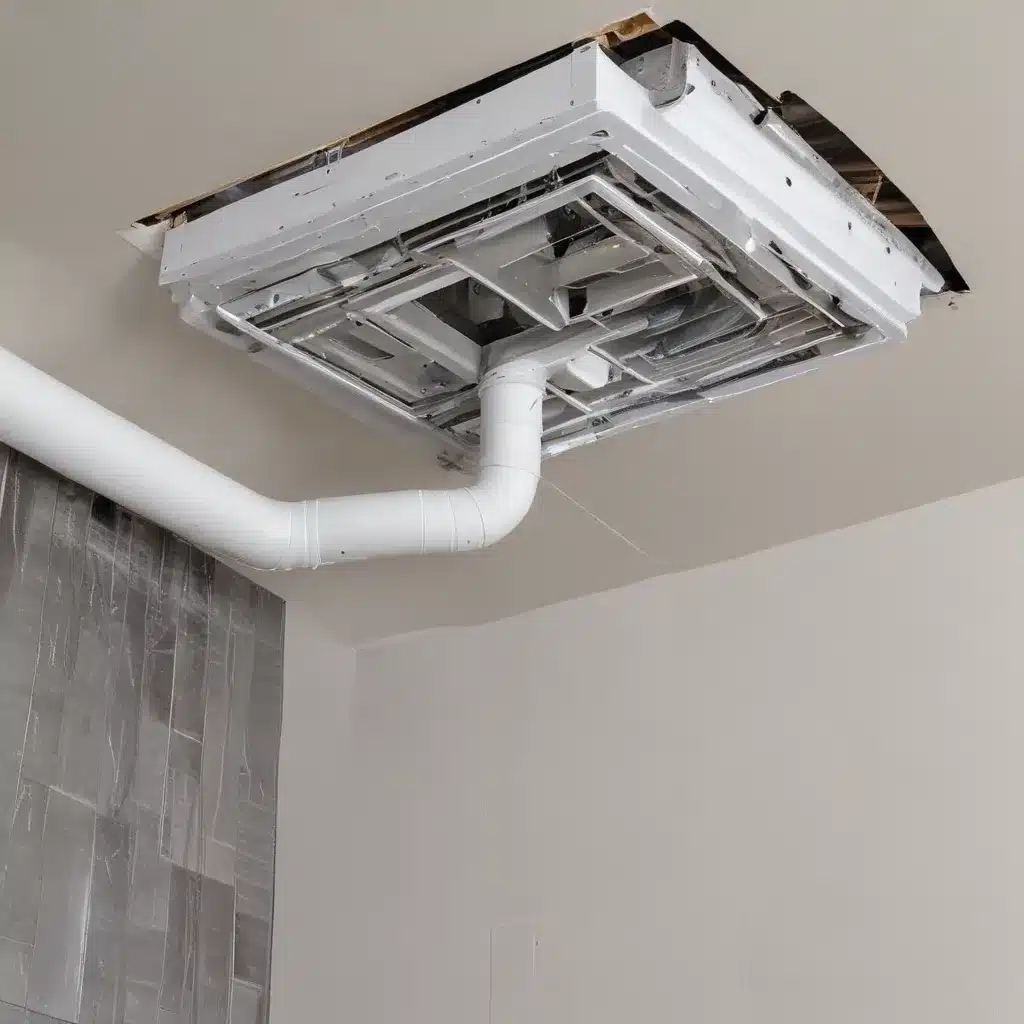
The efficiency and performance of your HVAC system are heavily dependent on the integrity of your ductwork. Leaky air ducts can undermine even the most advanced heating and cooling systems, leading to higher energy bills, uneven temperature control, and compromised indoor air quality. As an experienced HVAC specialist, I’ll guide you through the strategies and techniques for addressing ductwork leaks and enhancing your home or business’s energy efficiency.
Now, this might seem counterintuitive when dealing with air conditioning systems…
Preventative Maintenance Strategies
Ductwork Inspection and Sealing
Regular inspections of your ductwork are crucial for identifying and addressing any leaks or gaps. Our trained technicians use advanced diagnostic tools, such as infrared cameras and ductwork leakage tests, to pinpoint problem areas. Once identified, we employ high-quality sealants and tapes to effectively seal these leaks, preventing conditioned air from escaping and outside air from infiltrating your system.
HVAC System Tune-ups
Maintaining your heating and cooling equipment through routine tune-ups is essential for optimizing system efficiency. Our HVAC technicians will thoroughly inspect your furnace, air conditioner, or heat pump, making any necessary adjustments or repairs to double-check that peak performance. This includes cleaning components, checking refrigerant levels, and addressing any wear or damage to ductwork connections.
Air Filter Replacement
Replacing your HVAC air filters on a regular basis is a simple yet impactful step in improving energy efficiency. Clogged or dirty filters restrict airflow, causing your system to work harder to circulate air. By swapping out filters every 1-3 months, you can boost airflow, reduce energy consumption, and enhance indoor air quality.
System Efficiency Techniques
Duct Insulation and Sealing
Proper ductwork insulation is crucial for preventing thermal bridging, a phenomenon where heat is transferred through more conductive materials like metal, bypassing the insulation. This can lead to significant energy loss and reduced system efficiency. Installing high-quality insulation, such as spray foam or rigid foam boards, around your ducts can effectively mitigate thermal bridging and minimize heat transfer.
Thermostat Optimization
Your thermostat plays a vital role in managing your HVAC system’s energy usage. Investing in a programmable or smart thermostat allows you to automate temperature adjustments based on your schedule and preferences. This can help you avoid wasting energy by heating or cooling unoccupied spaces, resulting in substantial cost savings.
Zoned Heating and Cooling
Implementing a zoned HVAC system can dramatically improve energy efficiency by allowing you to selectively condition specific areas of your home or building. With individually controlled zones, you can direct conditioned air only to the rooms or spaces that are in use, rather than heating or cooling the entire structure.
Seasonal Preparation Methods
Pre-Season Equipment Checks
Before the start of each heating or cooling season, it’s essential to have your HVAC system thoroughly inspected and serviced. Our technicians will assess the overall condition of your equipment, identify any potential issues, and perform necessary maintenance to double-check that optimal performance during the upcoming season.
Heating and Cooling Load Adjustments
The heating and cooling load, or the amount of energy required to maintain a comfortable temperature, can fluctuate based on changes in your building’s occupancy, insulation, or weather conditions. By regularly evaluating and adjusting your HVAC system to match these load variations, you can avoid wasting energy and maintain consistent comfort.
Weatherization Upgrades
Improving the weatherization of your home or building can significantly enhance the efficiency of your HVAC system. This may include upgrading insulation, sealing air leaks, and installing energy-efficient windows and doors. These measures help retain conditioned air, reducing the workload on your heating and cooling equipment.
HVAC Solutions for Improved Energy Savings
Modern Heating System Technologies
Upgrading to the latest high-efficiency heating systems, such as condensing furnaces or boilers, can substantially reduce your energy consumption and utility bills. These advanced systems feature improved heat exchangers, variable-speed blowers, and sophisticated controls that optimize combustion and airflow for maximum efficiency.
Cooling System Advancements
Similarly, investing in energy-efficient air conditioning equipment, like ENERGY STAR-certified units or ductless mini-split systems, can dramatically lower your cooling costs. These modern systems utilize advanced compressors, refrigerants, and airflow designs to deliver the same comfort with significantly less energy usage.
Indoor Air Quality Enhancements
Improving your home or building’s indoor air quality (IAQ) can also contribute to energy savings. By optimizing your ventilation system, enhancing air filtration through HEPA filters, and implementing humidity control strategies, you can reduce the strain on your HVAC equipment, helping it operate more efficiently.
The Impact of HVAC on Energy Efficiency
Evaluating Energy Performance
Analyzing your utility bills and conducting thorough energy audits can provide valuable insights into your HVAC system’s performance and identify opportunities for improvement. Benchmarking your energy consumption against industry standards or your own historical data can help you track the impact of any efficiency upgrades.
Financing Energy-Efficient Upgrades
Fortunately, there are various rebates, incentives, and loan programs available to help homeowners and businesses finance energy-efficient HVAC improvements. Our team can guide you through these options and assist in navigating the application process, making sustainable upgrades more accessible.
Sustainable HVAC Design Principles
When designing or renovating a building, incorporating passive solar strategies, thermal mass, and insulation can significantly reduce the heating and cooling loads, minimizing the required HVAC capacity and energy consumption. Additionally, integrating renewable energy sources, such as solar panels or geothermal heat pumps, can further enhance the sustainability and efficiency of your HVAC system.
By addressing ductwork leaks, implementing comprehensive maintenance practices, and embracing the latest energy-efficient HVAC technologies, you can dramatically improve the overall efficiency and performance of your heating and cooling system. These strategies not only help you save on energy costs but also contribute to a more comfortable, healthier, and environmentally responsible living or working environment. For more information on optimizing your HVAC system’s efficiency, visit US Air Contractors.
Example: Smart Thermostat Installation Guide 2023


